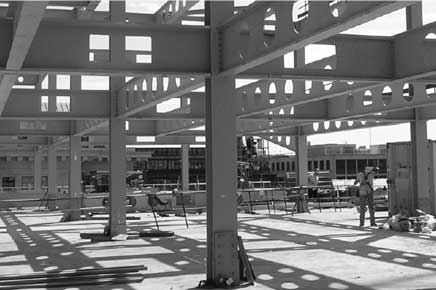Construction needs breathing space on post-Brexit visas
 Construction employers want greater simplicity and a breathing space on planned visa restrictions following the UK’s departure from the EU, says CITB.
Construction employers want greater simplicity and a breathing space on planned visa restrictions following the UK’s departure from the EU, says CITB.
The research report, Migration and Construction, finds that just 3% of construction employers have the necessary experience in handling visa applications, with two-thirds saying that the process is difficult.
Under the new post-Brexit immigration system - due to be introduced in January 2021 - employers will have to learn how to manage visa applications for EU workers. Any system that makes the hiring of migrant workers too bureaucratic threatens to block the work pipeline, including the Government’s homebuilding and key infrastructure ambitions.
CITB Policy Director, Steve Radley, said: “The industry is gearing up to face this challenge by training more home-grown workers. The intention is to have an extra 44,000 more British-based people in construction by 2025. This will be achieved through a mix of growing apprenticeships and widening the pool of talent, retaining more workers in the sector for longer, and exploiting technological advances.”
The report reveals that:
- 70% of employers of non-UK born construction workers see the ‘low skilled’ visa for people with level 2 qualifications unsuitable for their business. In particular, the 12 month time limit would be too short because training new workers will take much of that time, and many projects last longer than a year
- non-UK born workers are keen to ‘train to remain’. 61% of migrants say they would choose to move from a ‘low’ to a ‘high’ skilled visa while continuing to work in the UK. Over 43% of migrant workers are just one qualification level away from being able to do this. Construction employers are looking for flexibility in the new system to enable migrant workers to stay in the UK to take the qualifications they need to become more highly skilled and contribute to construction growth
- approaching half (41%) of EU migrant workers in construction are self-employed who, under current plans, may be lost to the sector because there is no visa system to cover them. CITB is working with government and key industry players, such as the Construction Leadership Council, to develop an ‘Umbrella Sponsorship’ scheme that will allow this vital group to obtain visas.
There are three key recommendations:
- The post-Brexit immigration white paper proposal for a ‘low-skilled’ visa of 12 months should be extended to 24 months.
- That non-UK born workers entering the UK on a ‘low skilled’ visa be allowed to transition to a ‘high skilled’ visa while remaining in the UK.
An ‘Umbrella Sponsorship’ scheme is needed to allow self-employed non-UK workers to obtain sponsorship, so that their skills are not lost.
Commenting on the new report, CITB Policy Director, Steve Radley said: “Migrant workers have long played a key role in the UK’s construction sector. They make up 14% of the construction workforce, a percentage that rises to 54% in London. They give employers the flexibility to respond quickly to skills needs.
“Employers are raising real concerns about the future 12 month visa scheme. They want to see it extended to 24 months, and for workers to be given the opportunity to ‘train to remain’. A new scheme must additionally be put in place to enable self-employed migrants to work in the sector.
“It’s important that construction has the breathing space to adjust to new changes. CITB will work closely with Government to see that a simple, flexible migration system is put in place to support employers’ skills requirements, while industry grows its domestic workforce.”